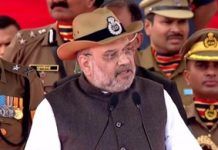Honeywell, the American multinational conglomerate, believes that smart cities can be a key growth area for it in India. “As a global company, we want to be supportive of driving growth [in smart cities]. As the urban population continues to grow, we are excited about opportunities in India,” Terence Hahn, the CEO of Honeywell’s new Home and Buildings Technologies (HBT) arm, stated. HBT makes connected devices for security monitoring, as well as air conditioning systems for consumers and enterprises. “We are building the ability to develop solutions locally for local applications which can then grow,” Hahn was quoted as saying.
Clive Longbottom, analyst at Quorcirca believes that the company’s strategy aligns with the goals of the Indian government. “Honeywell seems to be on to a good thing at a basic level. India is keen on smart cities and needs the overall IoT and business-flow skills to make these large projects happen. Honeywell has a lot of these skills and so should be a good fit – as long as it finds a good way to work alongside the Indian systems integrators who will all want a slice of the pie as well,” he said. However, Longbottom is not convinced that smart cities are necessarily the way to go for any country.
“Cities such as Pune in India are growing faster than their infrastructure can deal with – this is not just through the normal population growth and the influx of people to make the most of what is a modern and vibrant system – but also through people coming in from surrounding towns and villages looking for the streets paved with gold,” he said.
Honeywell has already participated in the Indian government’s Digital India initiative, and in May last year, it implemented an Internet of Things (IoT) surveillance and emergency response system in Ujjain. The system uses CCTV cameras and automatic number plate readers to help police in the area to prevent crime and manage crowds better.
The New Jersey-based company has also created an air purifier which can be controlled using a mobile app for both consumers and businesses. Vikas Chadha, president of Honeywell India, explained that the system had been customised for the Indian environment where pollution levels are far higher than in western countries.
Honeywell’s presence in India goes back 80 years. It now has seven manufacturing centres and five R&D labs here, employing almost 15,000 people. Its long history with the country is likely to stand it in good stead when competing against other vendors for large-scale smart city projects.








